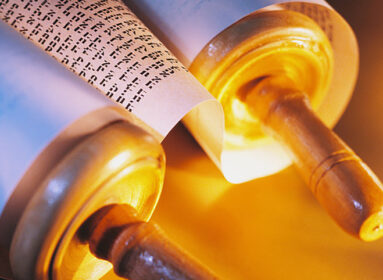
By Rabbi Tzvi Hersh Weinreb
A central theme in this week’s parsha is the dearth of water in the wilderness. Early in the parsha, we read about the people’s complaint to Moses and Aaron: “Why did you make us leave Egypt to bring us to this wretched place, a place with no grain or figs or vines or pomegranates? There is not even water to drink!” (Numbers 20:5)
The ensuing verses describe the efforts of Moses to obtain water for the people. But in the process of doing so, he fails to follow the Almighty’s instruction to “speak to the rock to yield its water.” Instead, he strikes the rock and forever suffers the consequences of disobeying the Almighty.
Much later in this week’s Torah reading, we have a much more successful encounter with precious water. The marching Israelites discover a wellspring of fresh water, a miraculous blessing from the Lord. The people react by bursting into song: “Then Israel sang this song: Spring up, O well – sing to it – the well which the chieftains dug…” (Numbers 21:17-18)
A national song! But not the first national song sung by the Israelites. Let us recall the “song of the sea”, the lengthy paean to be found in the Book of Exodus, chapter 15. This song is introduced with the following phrase: “Then Moses and the Israelites sang this song to the Lord.”
Compare the two introductory phrases. At the crossing of the sea, it was Moses who led the Israelites in song, and the song was addressed to the Lord. In this week’s Torah reading, neither Moses nor the Lord are mentioned. Israel seems on its own, without Moses. They celebrate the discovery of water but do not recognize the role that the One Above played in that life-saving discovery.
This discrepancy between the two songs is noted in the Midrash (Yalkut Chukat). The Midrash asks, “Why is there no mention of Moses? Because Moses had met defeat because of water, and no one praises the source of his great failure.” Moses, having failed earlier in our parsha to provide water for the people in precise compliance to the Almighty’s instructions, was incapable of singing joyously at this new and unexpected discovery of water. Water for him the cause of his tragic frustration. He was thus “blinded” to the wonder of this well in the wilderness. Moses, the great spiritual guide, was not available to the people to lead them in song, to help them appreciate the Lord’s great favor, and so they sang on their own, and failed to attribute the discovery of the well to Providence.
One of the most profound and insightful spiritual guides of the twentieth century was a man named Rabbi Eliyahu Dessler. In the second volume of his posthumously published Michtav Me’Eliyahu, Rabbi Dessler expounds upon this Midrashic passage and its implications. He writes, “When one’s teacher is unable to fully appreciate the spiritual significance of one of life’s events, then that teacher’s disciples will also be unable to see the hand of the Lord in those events.”
We all need a teacher, a guide, someone who is spiritually aware of things we cannot, or will not, see. This is why, writes Rabbi Dessler, we are urged in Pirkei Avot (Ethics of the Fathers) to “make for yourselves a teacher, aseh lecha rav.”
Rabbi Dessler summarizes the lesson he wishes us to learn with the following words: “This is the summary of the matter: a person must be careful to find spiritual guides and must take every advantage of the opportunities to learn from them. Life is full of obstacles which impede our ability to benefit from such masters.”
In our times, many of us, perhaps most of us, search for God on our own. We resort to meditation, contemplation, introspection. We fail to survey our surroundings to discover others who can guide us. We neglect the vast literature available on our tradition, which can put us into contact with men and women of the past who can serve as our guides although they may have lived centuries ago. We need not, nay we cannot, “go it alone” in a matter as important as finding the answer to the question, “Have you seen my God?”.
In this column, I have shared with you the names of two men, both of whom I know only through their writings, who have been helpful to me in my own search for a closer and more meaningful relationship with the Almighty. But Hillel Zeitlin and Rabbi Dessler are only two such individuals. I encourage you, dear reader, to find your own spiritual guides, either among those who are still with us in this world, or those who have passed on to the “world of truth” but who remain accessible to us through their writings and teachings.
Rabbi Dr. Tzvi Hersh Weinreb is the executive vice president emeritus of the Orthodox Union.








 Southern New England Jewish Ledger
Southern New England Jewish Ledger














